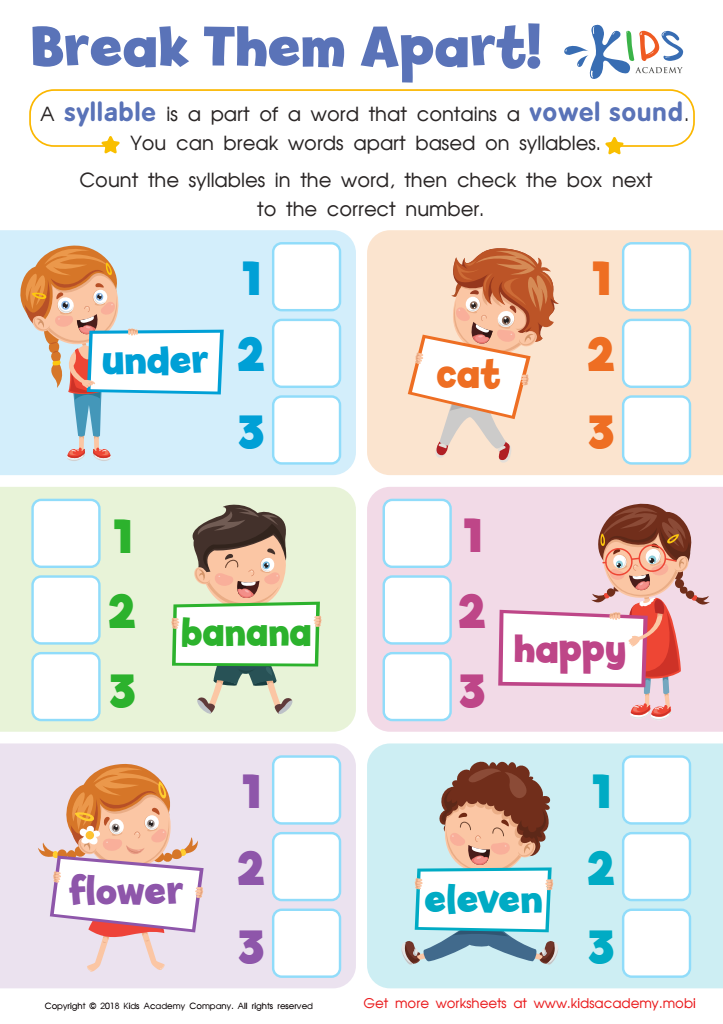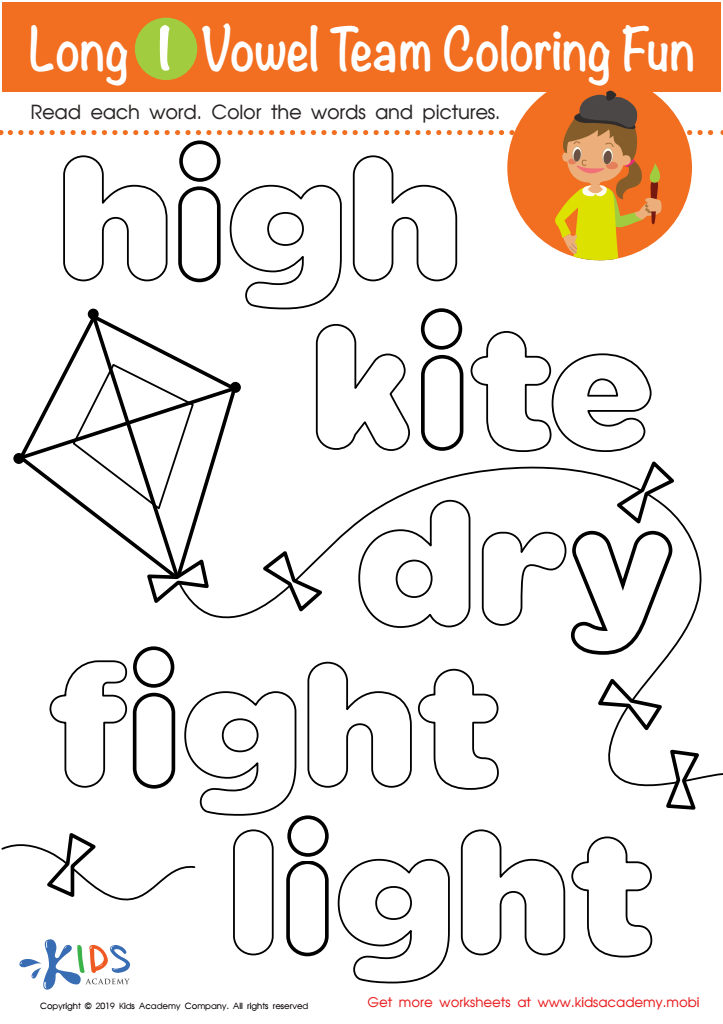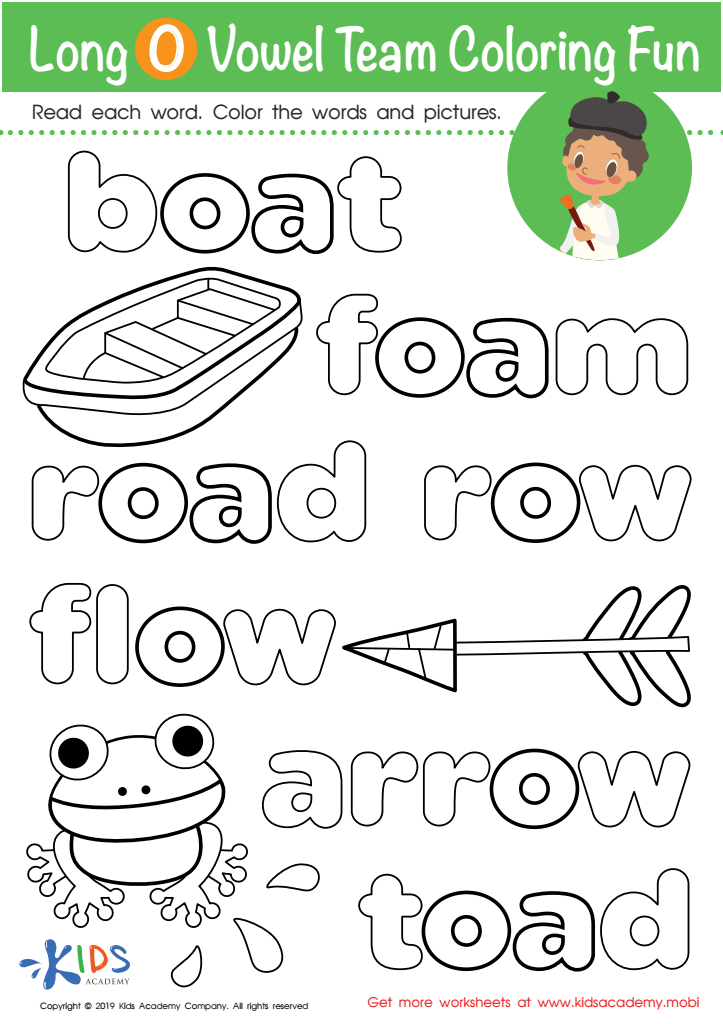Phonics Skills Elementary Phonics Worksheets for 8-Year-Olds
4 filtered results
-
From - To
Discover our engaging "Phonics Skills Elementary Phonics Worksheets" designed specifically for 8-year-olds! These printable resources offer a fun and interactive way to enhance phonics knowledge through various exercises. Our worksheets focus on essential phonics concepts, helping young learners master letter sounds, blending, and word recognition. Perfect for reinforcing classroom learning or supporting at-home education, these materials provide endless opportunities for practice. Encourage a love for reading and improve literacy skills with our colorful and creative worksheets, tailored to keep students motivated and excited about their learning journey. Explore our collection today and ignite your child's phonics skills!


Reading: Break Them Apart Worksheet


Long I Vowel Team Coloring Worksheet


Long and Short E Worksheet


Long O Vowel Team Coloring Worksheet
Phonics skills are crucial for 8-year-olds as they form the foundation for reading and writing proficiency. At this age, children transition from learning to read to reading to learn. Mastering phonics enables them to decode words confidently, enhancing their overall literacy skills. When children can recognize letter sounds and blend them to form words, their reading fluency increases, leading to improved comprehension.
Parents and teachers should care about phonics because it directly impacts a child's academic success and self-esteem. A strong grasp of phonics reduces frustration when encountering new vocabulary, instills a love for reading, and encourages exploration of more complex texts. Additionally, phonics instruction has shown to be effective in preventing reading difficulties and addressing gaps that can lead to struggles later in school.
Moreover, phonics skills support other areas of learning. They promote better spelling, writing coherence, and effective communication. A solid phonics foundation also cultivates critical thinking, enabling children to analyze and engage with texts more deeply. Investing time in phonics through engaging activities and supportive practices can lead to long-term benefits in a child’s educational journey, making it a worthy focus for caregivers and educators alike.

 Assign to My Students
Assign to My Students
















